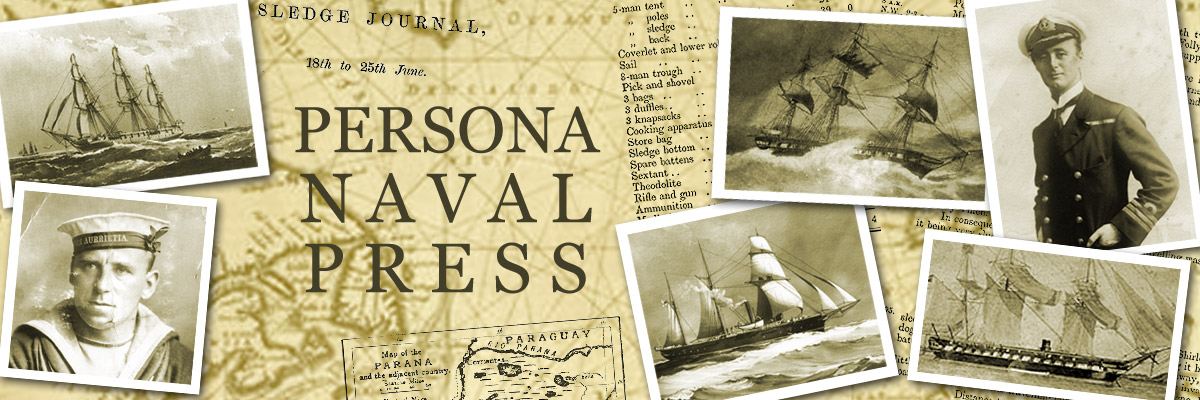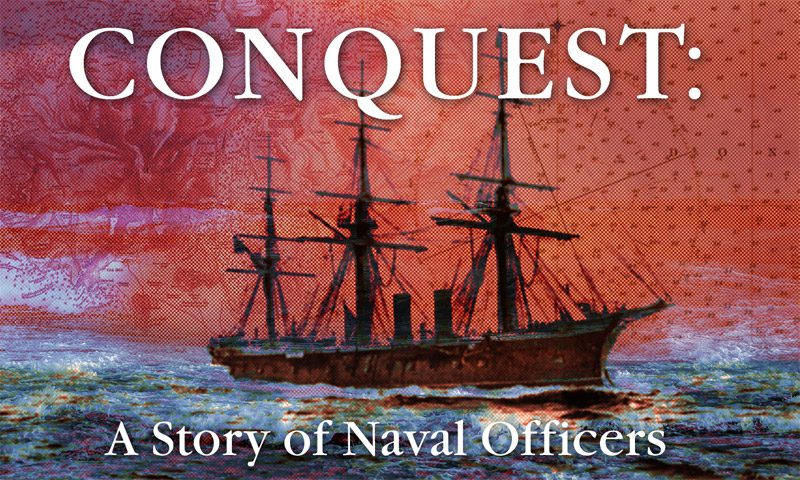Part 3 – Lieutenants
Chapter 10 – Interim
Ephraim looked forward to a few days spent in Portsmouth before he picked up his passage on Wentworth for Australia and his new commission as First Lieutenant in the Corvette Peerless waiting in Hope Bay. It seemed a little shopping might be in order now, something suitable for a First Lieutenant with a more socially flexible life before him. He went into the new Gieves naval store and looked round appreciatively, perhaps a coffee first and a glance at the newspaper in the nice cafeteria. He sat down and opened the Illustrated Portsmouth News and was astonished to see the headline, ‘Naval Officer rescued from Pirates after three years in captivity, Chinese Torment Comes to an End.’ There was a long article describing how the man had been forgotten about until a naval party had found him almost dead from starvation and dehydration in a native hut and pulled him out in the face of opposition, there was a sketch of an emaciated and haggard man being dragged out of a hut by two burly bluejackets being attacked by natives. Ephraim was just about to turn the page when he took a second look; there was something about the man, the thrusting chin, the dome of a head, that reminded him of someone. Dear Lord! It was William Gail! Could it really be William? It would account for why nobody had heard of him. Surely it was him! Look at that face, they’d even got the missing eyebrow! It said he was in Portsmouth at Admiralty house before returning home for recuperation and a new commission. Ephraim hadn’t got much time, but he must see William before he left for Australia. He must find out for certain about the child. Leaving his coffee unfinished, he hailed a cab and presented himself at Admiralty House.
‘First Lieutenant Browne to see Lieutenant William Gail.’
‘Oh, another one!’ and to Ephraim’s astonishment he was ushered upstairs to a room with a Sub Lieutenant standing outside who took his name and told him that he could only stay for fifteen minutes.
William was sitting in a chair. He seemed nothing but skin and bone, a skeleton of the young officer and friend Ephraim remembered. He hardly liked to trouble the poor fellow with speaking.
‘On there!’ William managed a hoarse whisper, he indicated some letters on the table.
‘Written it down for people. Too much to say. There’s one letter for you. Take it,’ and he sank back into the chair.
‘William, my dear man, I am so sorry. You look exhausted and no wonder! But they only give me a few minutes. I don’t like to trouble you and I will read the letter with great interest, but I must ask you about that baby Emily had. Did it live? Was it a boy? Where is he? How is he? I heard Lady Gail died but I wasn’t thinking about anything then. Something happened, and now I am. I want to see him.’
‘He is alright…with grandmother in Stirling…was ill but…’ William was obviously having trouble breathing.
‘I’m going to tell the Sub to fetch a nurse.’
‘No, not…’ Gail’s head fell forward and his voice was lost in coughing.
Ephraim picked up the letter.
‘What was his name?’
‘She named him after…thought you’d…know you didn’t…never…’ His head fell on his chest, his voice subsided. Then he rallied,
‘Ephraim. We named him after you – remember the mighty village – you’ll need more of ’em to fill it? Give them better names!’ and William fell back into a collapse of laughter and failing breath.
Ephraim tried to help him with the glass of water on the table. He went to the door and called for a nurse.
‘I’m off to Australia soon William, but I will write, and we must find a way to meet when you feel better.’
Ephraim could not wait to open the letter though he feared what it might tell him. The first part was an explanation of what had happened to Gail. Briefly, he had been taken by pirates who wanted a ransom for him and imprisoned him in a sampan marooned on the edge of the Yangtse. He had managed to escape and was trying to find a British ship, when a second capture and imprisonment meant he was held underground in a trading station while his captors tried to manufacture a deal whereby they sold him for cloth that they could sell on at a better price. This went to and fro, until William made a second escape in search of a British ship. His captors had found it worthwhile to keep him fed and exercised. And worth something. After his second escape he was searching and hiding along the banks of the Yangtse, finding it harder and harder to find food as he lost energy. Then a third capture by coolies who left him in a hut virtually unfed and without drink, where he was able to get out a message to the employers of the coolies who organised a bluejacket rescue for the advantage of being recognised as helpful to the British Admiralty and Government.
It seemed William was rescued in the nick of time, thank God.
The second half of the letter was different.
My dear Ephraim, I must tell you that I believe you must put your life in order now and truly consider your behaviour in some areas, especially in your behaviour in relation to your son. We understood at first the great calamity which had struck you with the death of Emily, and mother especially understood how you could wish to have nothing to do with the baby that you thought had killed their mother. She was delighted to have the baby to look after until you came to your senses. And then, when she died suddenly, father who never bothered about children, even us, seemed to forget that little Ephraim was not one of us and has treated him as such, ever since. The baby went to grandmother in Stirling where our family home is in Scotland but the time has come for you to pick up that burden. You must know him now, and he must know you. And Ephraim, on a deeper level, it is no use hiding burdens and pretending they do not exist. You do that you know. Oh yes, you fought Stollman and did that ridiculous business with the soap and you married Emily, but you don’t involve yourself unless you want to, you stay in your own world. How could you forget your son for six years? Because you didn’t care and didn’t want him. It is only now, that for some reason you say you care, you want him. It is only for your own advantage. You go on about God, but you don’t behave like a Christian. When I was in that hut with the coolies there were Buddhists that risked their lives with the owners by bringing me food and water – and I was nothing to them. Think on, dear man. For your own good,
Your friend and brother – not only in law!
William
Ephraim did think on. He realised the truth of what William said and was ashamed. Yes, he did live according to his own lights and not always the light of God, he did things for his own advantage even the good things, but don’t we all? However, not everybody forgot about their children and their wife. When did he last think of Emily? Not much in the excitement of the Niger and the Congo, and certainly not in his pride and anticipation of promotion. And he had quite forgotten the child after he had been unable to find William. Yet he was not a fool, there were limits. He could not always be grieving for his wife and looking for his son. Well, he must just try and be a bit better. Perhaps he should pray a bit more. It was amazing how much passion and anguish one could suffer and then later forget all about it. What complicated creatures we are, what little control we really have in our lives. It seemed understandable with Emily. She had gone, or not gone to Heaven. She was happy, or not happy now and she was responsible for that. Such a lovely, responsible girl could only go to Heaven and now he was just left with lovely memories which he could tuck into whenever he wanted, almost as if it was the real thing, and forget the rest of the time. Why couldn’t a man learn that sort of control earlier! But with little Ephraim, even the name gave him a thrill, he had never liked it but now he saw it on someone else, he thought it impressive. Perhaps that was enough. Perhaps leave the situation as it was. Child happy, in good place. A six year old in school was different from a two year old, babbling ‘baa, baa black sheep’ and wanting to climb on your lap! But, still…Ephraim folded the letter and put it in a drawer. He could look at it again, later. Now he would have some supper and start to enjoy the passage out. Wentworth seemed a decent ship. He would see if there were any other naval passengers.
Then he would pay attention to what would be required of a First Lieutenant in an important outpost of the British Empire.

